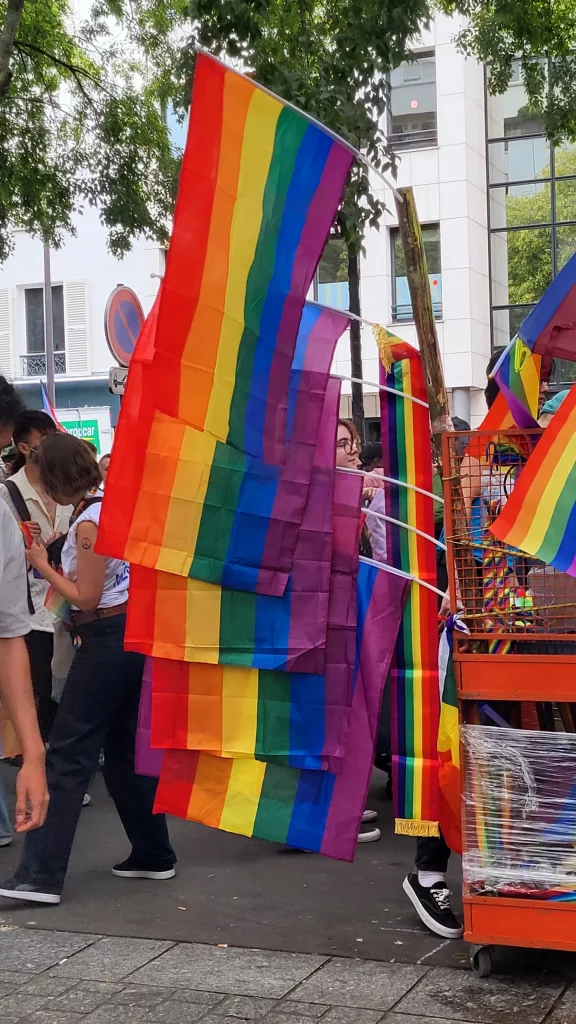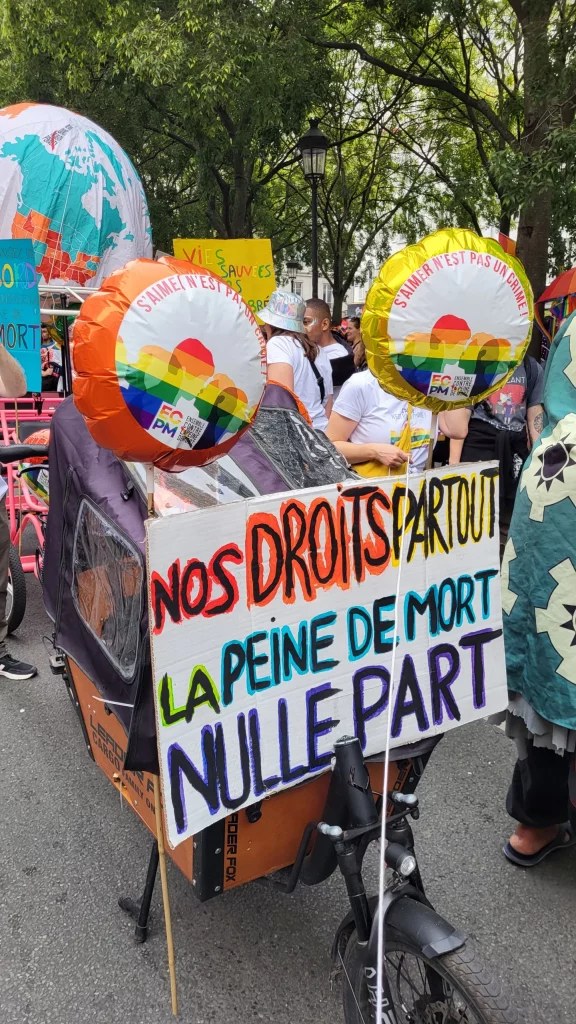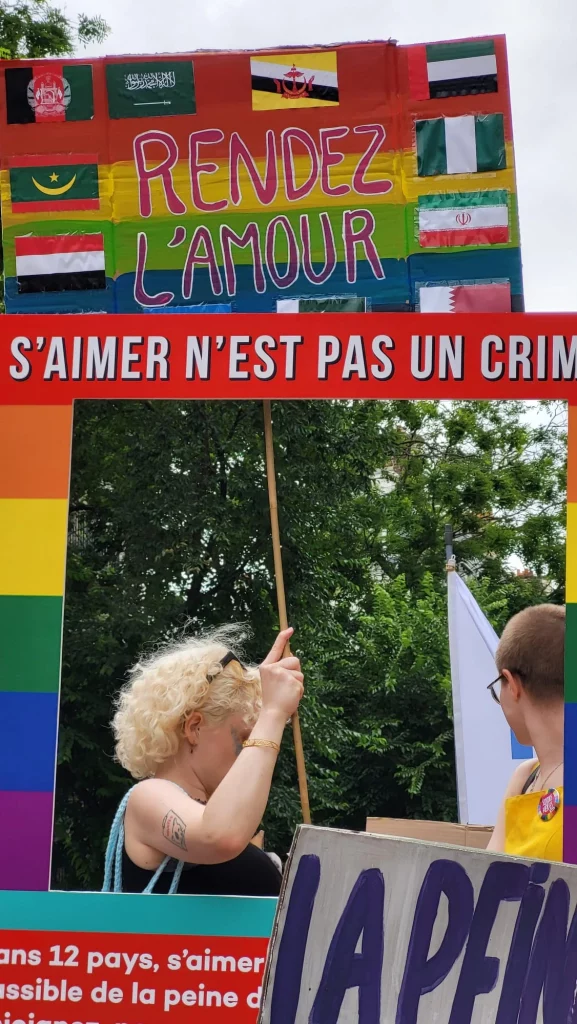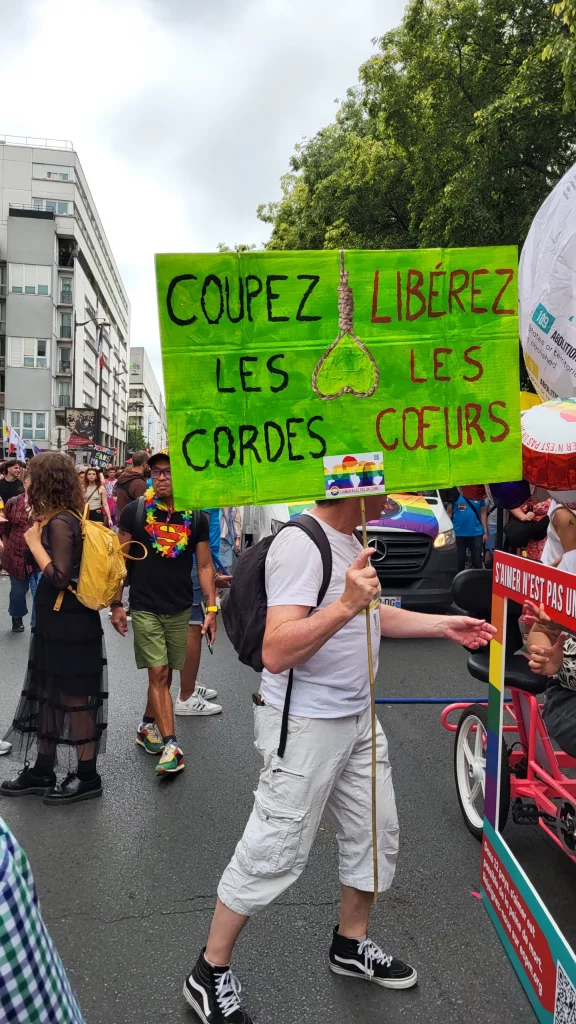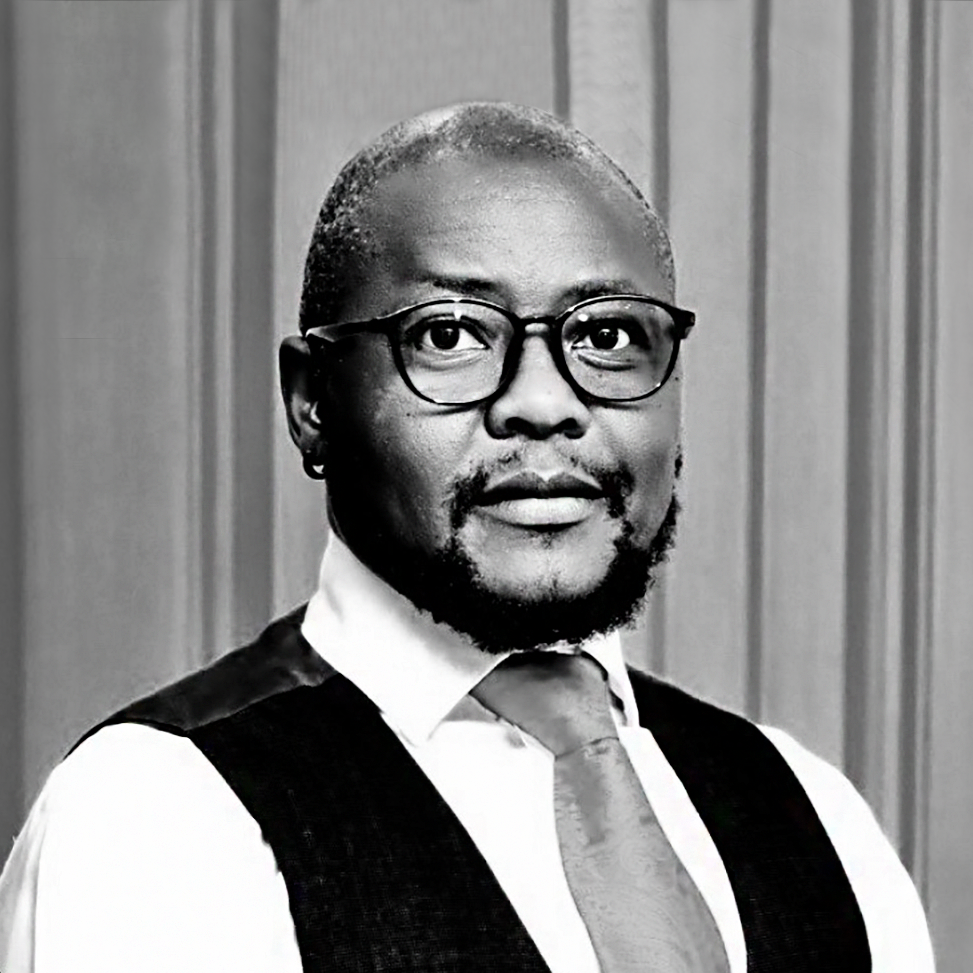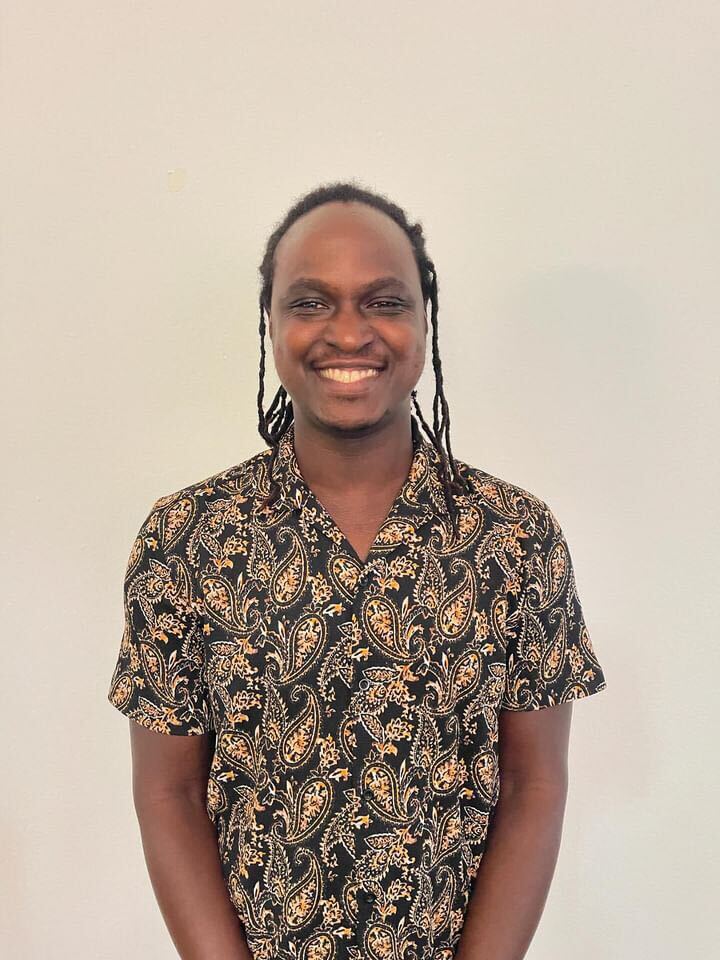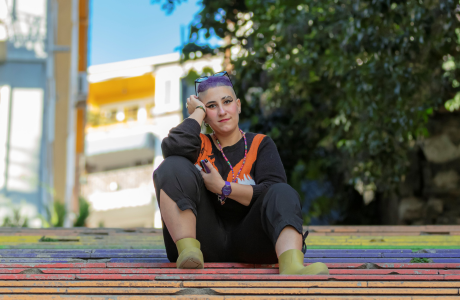
Which states apply the death penalty to LGBTQIA+ people and under what legislation ?
Afghanistan
Although the Afghan Penal Code does not contain an explicit provision prohibiting consensual sexual relations between persons of the same sex, Article 130 of the Constitution allows for the application of Sharia law. Thus, any sexual relations outside marriage can lead to a death sentence.
Saudi Arabia
Under Sharia law, sexual relations between men are a crime, although the penalty is not clearly specified. However, although the sentence to be imposed may be debated by the courts, given that sex outside marriage is illegal in all cases, the penalty for a married man is usually stoning (and 100 lashes and a year’s exile for a single man).
United Arab Emirates
Under Sharia law, any sexual act outside marriage is punishable by death. The states of Abu Dhabi and Dubai have state laws that provide for imprisonment for sodomy (14 and 10 years respectively).
Iran
Under the 1991 Penal Code, sodomy by adult, legally responsible, consenting men is punishable by death. For female homosexuality, one hundred lashes are imposed for the first three offences, while the death penalty applies to the fourth offence.
Mauritania
Despite a moratorium on executions since 1987, Article 308 of the Penal Code states that “any Muslim of full age who commits an indecent or unnatural act with a person of the same sex shall be liable to death by public stoning”. For women, the penalty is 2 years’ imprisonment and a fine.
Qatar
The 2004 Penal Code no longer makes sodomy or other consensual same-sex sexual activity a crime in itself. Nevertheless, the courts can also refer directly to Sharia law and sentence Muslim men to death for homosexual relations.
Nigeria
Under Sharia law, 12 states in the north of the country impose the death penalty for male homosexuality. Women face imprisonment or flogging. As of January 2014, the law criminalises same-sex marriage, LGBT+ organisations and public displays of affection. In other states, sentences range from 10 to 14 years in prison.
Pakistan
Outlawed by the Penal Code of 1860, homosexuality is punishable by death. In that country that applies Sharia law, homosexuality, bisexuality and transidentity are deeply taboo.
Somalia
Sharia law is applied in Southern Somalia, in the areas controlled by Al-Shabaab, and in Somaliland. Same-sex relations are punishable by death or flogging.
Yemen
Under Article 264 of the 1994 Penal Code, sodomy carries the penalty of death by stoning for married men (and 100 lashes or one year’s imprisonment for unmarried men). Article 268 provides for a penalty of 3 years’ imprisonment for sexual intercourse between consenting women.
Brunei
In May 2014, new legislation was drafted to introduce Sharia law in the state, making homosexuality a crime punishable by death, whereas the previous penalty was up to ten years’ imprisonment. In May 2019, the Sultan of Brunei announced a moratorium on the death penalty for homosexuality and adultery.
Uganda
In 2023, the 2013 anti-homosexuality law was tightened. Enacted on 26 May 2023, Article 3 provides for the death penalty for ‘aggravated homosexuality’ in cases where the convicted person is a ‘serial offender’ (including anyone who has ever been convicted of engaging in sexual acts between consenting adults). The death penalty is also mandatory where “the person against whom the crime is committed contracts a terminal illness”. According to the definitions in the law, this provision could be applied to impose the death penalty if one of the individuals involved contracts HIV as a result of sexual intercourse.
The Report “10 questions on the death penalty for LGBTQIA+” (2024)
As part of the “Love is Not a Crime” campaign, ECPM published a report entitled “10 questions on the death penalty for LGBTQIA+”. The report is based on an analysis of the political, legal and socio-cultural contexts of states where consensual same-sex relations are criminalised. Written by Céline Martin (an international consultant on LGBTQIA+ issues), ECPM questions the intersection of gender, sexual orientation and the death penalty, to explore the discrimination faced by sexual and gender minorities from a legal perspective.
How can you get involved with ECPM to defend the rights of LGBTQIA+ people?
Since 2005, ECPM has taken part in the Paris Pride March to promote the rights of the LGBTQIA+ community. Once again, this year, we will be present at the Paris Pride March on 28 June, feel free to join us !

